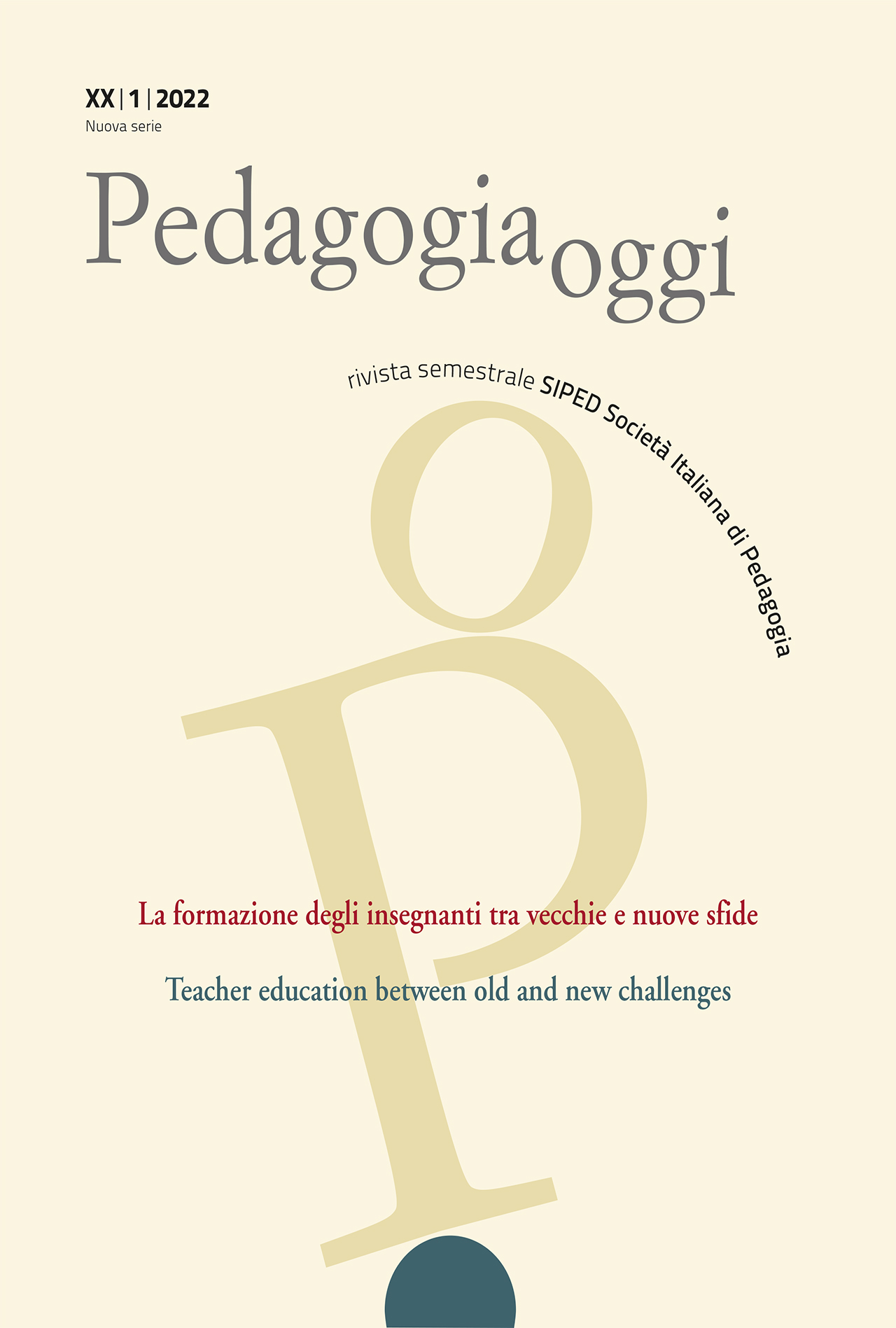L'insegnante riflessivo per una scuola inclusiva
DOI:
https://doi.org/10.7346/PO-012022-21Keywords:
Selezionato:diversity, inclusion, reflective thinking, intercultural competence, socio-emotional skillsAbstract
The school represents the ideal setting for facing and reducing inequalities, creating a pluralist, equitable, and democratic society, and forming conscientious, responsible, and intelligent citizens. This goal can be reached only by adopting an intercultural perspective that gives up the logic of compensatory and exceptional measures, rejects the assimilationist approaches, and supports the ability to know, appreciate and enhance the differences (of ethnicity, social origin, gender, ability). In other words, the school should promote inclusion and social cohesion processes by assuming diversity as a paradigm of its own identity. This perspective requires planning initial and in-service training for the teachers that go beyond informative content and enables the development of reflective habits. The professional's reflective attitude supports the development of intercultural competence and socio-emotional skills that make him an effective and inclusive teacher.




